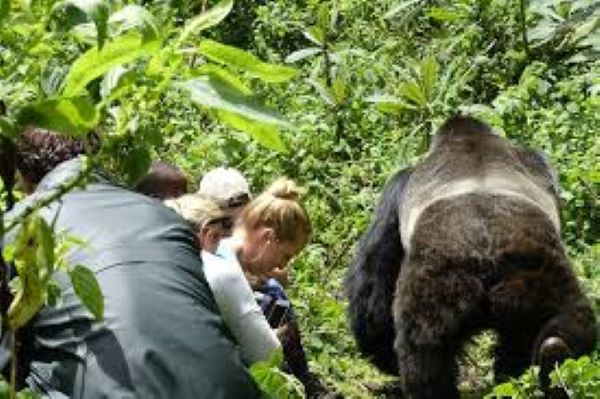Economy
How tourism in Rwanda paid money in the first half of 2024

Tourists who visited Rwanda from various parts of the world spent $267.71 million on goods and services in the first half of 2024, a new survey by National Institute of Statistics of Rwanda (NISR) shows.
This represents an increase of almost 12 per cent compared to $236.2 million visitors spent in the first half of 2023, as per NISR figures.
The Travel Spending Survey (TES) Report 2024 was conducted from November 2023 to January 2024 for the first quarter, and May to July 2024 for the second quarter.
The survey that looks at how travellers spend their money gathered information from a varied sample of Rwandan and foreign visitors, analysing expenditures in major categories: accommodation, food and beverages, transportation, shopping, entertainment, sightseeing, and other spending excluding international transportation costs.
In the first quarter and the second quarter of 2024, the travel credit (expenditures of visitors on goods and services acquired from Rwanda) was $123.31 million and $144.4 million, respectively, totalling $267.71 million, while the debit (expenditures of Rwandan residents on goods and services acquired from other countries where they travelled) stood at $85.7 million and $83.1 million, respectively, totalling $168.8 million.
In the second quarter, travellers using air transport generated 84.4 per cent of credit transactions, compared to 68 per cent for debit transactions.
The survey interviewed 23,488 non-resident respondents by their mode of travel (air or land). They include 2,859 who whose mode of transport was air, and 20,629 who used land transport means.
On average, it indicated, non-Rwandan residents traveling by land stayed in Rwanda for education (115 days) as the most purpose, with the largest number of stays from Europe (350 days). Similarly, it added, for air transport, non-residents mostly stayed on average in Rwanda for education (24 days), with the largest number of stays from EAC [travellers] with 39 days.
Holiday as top purpose in spending
Regarding the total travel credit by the purpose of travel in the first quarter of 2024, visitors spent $130.2 million on holiday (accounting for 48 per cent of the total credit), $68.9 million on visiting friends and relatives, $46.7 million on business, $16.7 million on education in the first half of 2024, and $1.6 million on health.
The survey report showed that the average daily expenditure per non-resident by air during their stay in Rwanda was on holiday ($173) as the most purpose, and the largest spending in this category was from North America ($208).
Similarly, the average daily expenditure by land per non-resident (visitors) during their stay in Rwanda is on holiday ($66), and the largest spending in North America ($139).
On the average daily expenditure per non-resident air travellers, by country grouping, air travellers (visitors) from Asia spent most on holiday ($189 on average) daily, followed by business ($131), and education $66.
Visitors from EAC by air also spent most on holiday daily ($165 on average), followed by business ($116), and education ($79), while they spent less on health ($37).
Visitors from Europe by air spent more on holiday daily (with $151 on average), followed by business ($144), while they spent less on education ($85).
Visitors from North America by air spent most on holiday, with an average of $208 daily, followed by business ($126), health ($107), while they spent less on education ($70).
Visitors from the rest of Africa who arrived by air spent $151 on holiday, $133 on business, $73 on education, $22 on health, while those from the rest of the world spent $188 on holiday, and $166 on business.
According to the report, the results from the survey will cater to a wide range of tourist interests and improve travel experiences.
Also, it is noted, they feed the national accounts and balance of payments statistics.
The authors noted that policymakers, businesses, and other data users can rely on this report’s results to make evidence-based decisions.
Alphonse Munyankindi
